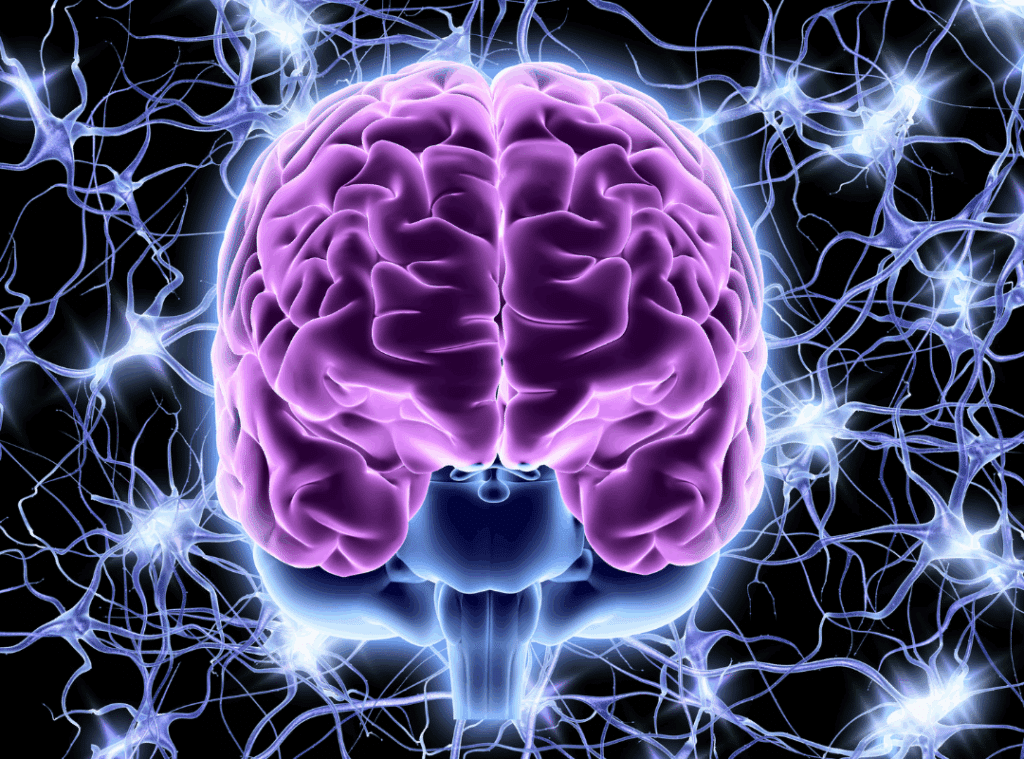Learning how to strengthen the nervous system is essential, especially for older adults seeking to maintain vitality and independence. A healthy nervous system supports everything from mobility to memory, and knowing the right methods to care for it can make a profound difference in quality of life.
At Westmont Village Homes, we believe it’s never too late to build resilience. Whether through tailored fitness programs, mindful nutrition, or professional guidance, seniors can take daily steps to strengthen their nervous system and enhance well-being. Let’s explore how.
Understanding the Nervous System and Its Importance in Seniors
The nervous system operates as the body’s command center, and as we age, its proper function becomes even more critical. The brain, spinal cord, and peripheral nerves all play key roles in daily movement, reflexes, and cognition. Unfortunately, aging can lead to reduced efficiency and symptoms of a weak nervous system, such as memory decline, numbness, or coordination issues.
Supporting the nervous system helps preserve independence and improve overall health. Seniors can benefit greatly from adopting routines that include exercise, balanced meals, hydration, and social engagement. At Westmont Village Homes, we emphasize community involvement and supportive care to promote lasting vitality.
Common Nervous System Issues Faced by Seniors
Seniors often face neurological changes that can interfere with everyday life. Understanding the signs of a deteriorating system can help you act early.
Recognizable Conditions Include:
- Cognitive Decline – Including memory loss, confusion, and slower thinking.
- Peripheral Neuropathy – Pain or numbness in the extremities due to nerve damage.
- Sleep Disorders – Often caused by disrupted neurotransmitter activity.
Understanding these issues is the first step in learning how to repair the nervous system naturally. Identifying these symptoms early can lead to timely support and improved outcomes. Managing sleep and mental clarity is just one part of the equation.
Daily Exercise: A Natural Nerve Booster
One of the most reliable ways to strengthen weak nerves naturally is through consistent physical activity. Exercise stimulates the production of neurotrophic factors that help nerves grow and repair.
Effective Exercises for Seniors
| Exercise Type | Benefits | Frequency |
| Balance Training | Enhances stability and motor coordination | 3–4 times/week |
| Flexibility Workouts | Reduces stiffness and improves nerve mobility | Daily (10–15 mins) |
| Cardio/Aerobic | Increases blood flow to the brain and nerves | 150 mins/week |
Staying physically active supports brain health, boosts mood, and is essential in preventing falls, making it a core part of any plan on how to strengthen the nervous system.
Nutrition: Feeding the Nervous System
Proper nutrition isn’t just about staying strong—it’s about fueling the body’s command system with what it needs to perform.
Essential Nutrients for Nerve Health
- Omega-3 Fatty Acids (in salmon, flaxseeds) help regenerate nerve tissue.
- B-Vitamins (like B12 and B6) maintain nerve insulation and transmit signals.
- Antioxidants (in berries and greens) reduce oxidative stress on the brain.
Good nutrition also means improving digestion and reducing inflammation—two factors that affect nerve health. Supplements may also be considered under medical guidance.
Best Food for Nerve Repair
To repair and maintain your nervous system, incorporate:
- Salmon, mackerel, sardines – Omega-3s
- Spinach, kale, broccoli – Antioxidants and vitamins
- Whole grains – B vitamins for nerve conduction
- Nuts and seeds – Magnesium and zinc for nerve stability
These are among the best foods for nerve repair and help build long-term resilience.

The Power of Hydration
Dehydration can cause symptoms similar to a weak nervous system, including dizziness, confusion, and fatigue.
Easy Hydration Tips:
- Drink water consistently throughout the day.
- Eat hydrating foods like watermelon, cucumbers, and oranges.
- Limit caffeinated beverages, which may dehydrate.
Hydration supports cellular communication and the transmission of electrical nerve signals, both critical to senior health.
Soak Up Sunlight: Healing from the Outside In
Sunlight provides vitamin D, which supports nerve and brain function. Even 15 minutes daily can help.
| Benefit | Impact on Nervous System |
| Vitamin D Synthesis | Improves calcium absorption and nerve signaling |
| Mood Boost | Enhances serotonin, reducing anxiety |
| Physical Activity | Walking or gardening stimulates nerves |
Outdoor exposure encourages movement, improves sleep patterns, and reinforces circadian rhythms. For more holistic healing, try forest bathing, or gentle walks in green environments.
Learn more about the benefits of sunlight on the nervous system at Harvard Health Publishing.
Spotting the Symptoms of a Weak Nervous System
Early intervention depends on recognizing red flags. Common symptoms of a weak nervous system include:
- Numbness or tingling in hands and feet
- Memory loss or confusion
- Tremors or shaking
- Trouble with coordination
- Unexplained fatigue
These symptoms are warning signs that something deeper may be affecting your neural health. Don’t ignore them.
How to Repair the Nervous System Naturally
Holistic strategies are key in restoring balance to your nervous system. Here’s how to repair the nervous system naturally:
- Eat Whole Foods – Choose organic, plant-based, and omega-rich meals.
- Meditate – Relaxation lowers cortisol levels and inflammation.
- Stretch and Walk – Gentle movement supports blood flow and nerve healing.
- Sleep Well – Aim for 7–8 hours to allow overnight recovery.
These methods also help with how to strengthen weak nerves naturally, allowing gradual healing through lifestyle alignment.
For evidence-backed strategies, visit the Cleveland Clinic’s Neurology Resources.
Seeking Professional Help for Neurological Issues
Knowing how to strengthen the nervous system is empowering, but sometimes you need professional support.
Signs You Should Consult a Specialist
- Persistent muscle weakness
- Sharp nerve pain or burning sensations
- Trouble speaking or swallowing
- Balance issues or falls
Finding the Right Neurologist
- Use online tools like Zocdoc or Healthgrades
- Contact nearby hospitals like DPU Hospital
- Check national registries such as the American Academy of Neurology
Specialists can provide tests, imaging, and tailored care plans for more serious or chronic issues.
Personalized Treatment Plans
Doctors may recommend:
- Physical Therapy – Exercises tailored to nerve health
- Occupational Therapy – Restoring motor skills
- Nutritional Counseling – Optimizing meals for nerve repair
- Medications or Supplements – Where needed for pain, inflammation, or deficiencies
This kind of plan supports both immediate relief and long-term healing.
Thrive with Westmont Village Homes
You don’t have to face nervous system challenges alone. At Westmont Village Homes, we offer tailored wellness programs, nutritious dining, and expert-led fitness classes—all designed with seniors in mind.
Call us today at 951-697-2060 or schedule a tour to learn how we can support your health journey.
Nurture a Healthier Nervous System Today
Caring for your nervous system is an ongoing commitment, but the rewards are life-changing. From eating the best food for nerve repair to engaging in simple exercises and spending time in the sun, each small action contributes to big changes in your well-being.
With the right approach, including professional support when needed, you can age vibrantly and confidently. Let Westmont Village Homes be your partner in health, providing the resources and environment to keep your nervous system strong for years to come.
Dive into the vibrant life our Westmont communities have to offer.Find Where You Belong
Frequently Asked Questions
What are the signs of nervous system problems?
Signs of nervous system problems can include persistent headaches, numbness or tingling in the hands or feet, sudden vision changes, or difficulty with coordination and balance. Other symptoms may involve muscle weakness, memory issues, or involuntary muscle movements. Mood changes, sleep disturbances, and sensitivity to light or sound are also common. If you notice multiple symptoms occurring regularly, it may be time to consult a neurologist.
How to restore the nervous system?
Restoring the nervous system involves a combination of healthy lifestyle choices and targeted therapies. Regular physical activity, a balanced diet rich in omega-3 fatty acids, and stress-reducing practices like meditation can help. Adequate sleep is crucial for repair and recovery. Some individuals also benefit from therapies such as acupuncture, massage, or chiropractic care to support nervous system health.
How do you know your nervous system is healing?
Signs of nervous system healing include improved energy levels, better sleep quality, and reduced symptoms such as tingling, pain, or brain fog. You may also notice increased mental clarity, coordination, and emotional stability. Consistent progress in physical and cognitive functions often indicates recovery. It’s important to track your symptoms and consult a healthcare provider to assess improvement.
How to treat nervous system problems?
Treatment for nervous system problems depends on the underlying condition but often includes medications, physical therapy, and lifestyle changes. Anti-inflammatory drugs, pain relievers, or nerve-specific medications may be prescribed. In some cases, cognitive therapy or occupational therapy can support recovery. A comprehensive approach involving diet, exercise, and stress management typically yields the best results.








